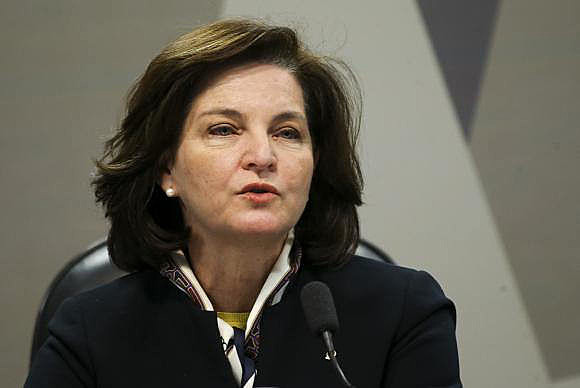Raquel Dodge took over on Sunday as the head of Brazil’s attorney general’s office [PGR by its Portuguese acronym], inheriting the task of managing legal cases overseen by the Brazilian Federal Public Prosecutor's Office (MPF by its Portuguese acronym).
She takes control amid deeply tenuous political circumstances. As the first female head of the PGR, Dodge comes appointed by current President Michel Temer, who last week was charged with corruption for the second time, by outgoing Attorney General Rodrigo Janot.
As Dodge prepares to take over from Janot, the public will carefully examine how she proceeds with the handling of the latest charges brought against President Temer.
Specifically, she must decide on whether the state will rely on plea-bargain testimony made with the former chairman of meatpacking company JBS that has been suspended because of irregularities.
Dodge’s impartiality was called into question after critics slammed her for holding a private meeting with President Temer on Sunday leading up to the official inauguration ceremony.
Dodge, who was appointed by Temer, has some analysts warning that her new position represents a potential slowdown in Brazil's anti-graft corruption investigation.
However, Frederico de Almeida, professor of Political Science at the University of Campinas (Unicamp), pointed out that the attorney general's position, is limited in terms of determining which cases get prosecuted.
“The leader of the PGR wields political power, which can fluctuate. It is a very symbolic position. The attorney general can speak on behalf of the institution. However, the Federal Public Prosecutor's office is unique: individual prosecutors of the Republic, even in the lower courts, have a lot of autonomy, providing them significant capacity to decide on what kind of legal actions they will take.”
Despite certain institutional constraints Almeida added that the new attorney general would be empowered by the ability to “create specialized legal chambers”, which are established in order to achieve greater continuity in terms helping determine the kind of legal cases that are prosecuted.
Progressive legal past
Despite fears that Dodge is Temer’s first choice, some sectors of the progressive left point out her progressive legal track record with regards to ruling of slave labor and indigenous communities.
Rafael Modesto, a legal adviser with the Indigenous Missionary Center (CIMI), says that the new attorney general is one of the MPF’s most sensitive lawyers with regards to the issue of indigenous peoples, which comes at at time when Brazil’s indigenous population faces widespread repression across the country.
"We have a very high expectation regarding her performance at the head of the PGR. She is a highly respected person within the (MPF) and within the justice system, “Modesto stated.
Edição: Nate Singham




